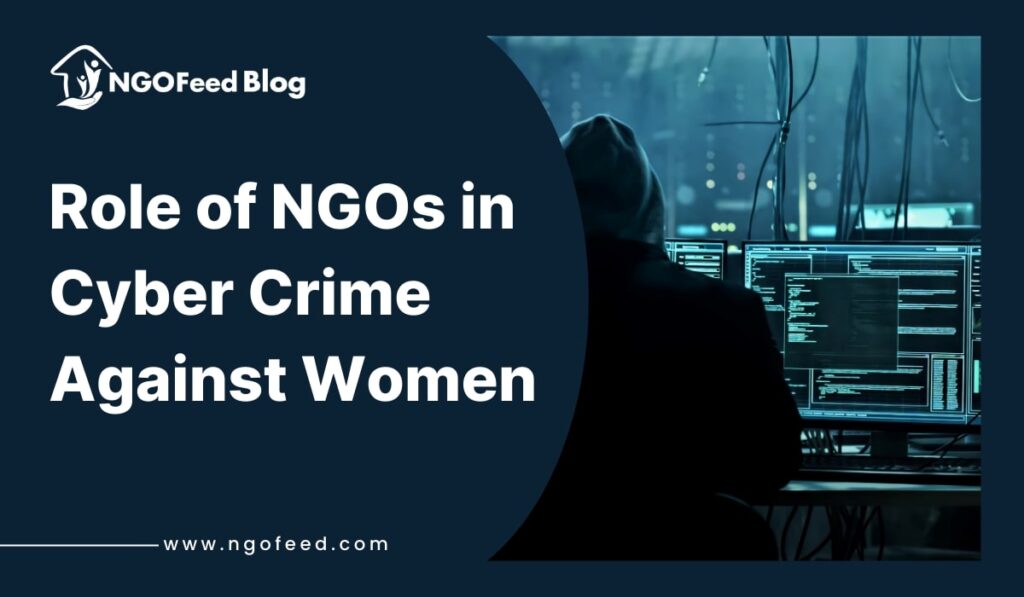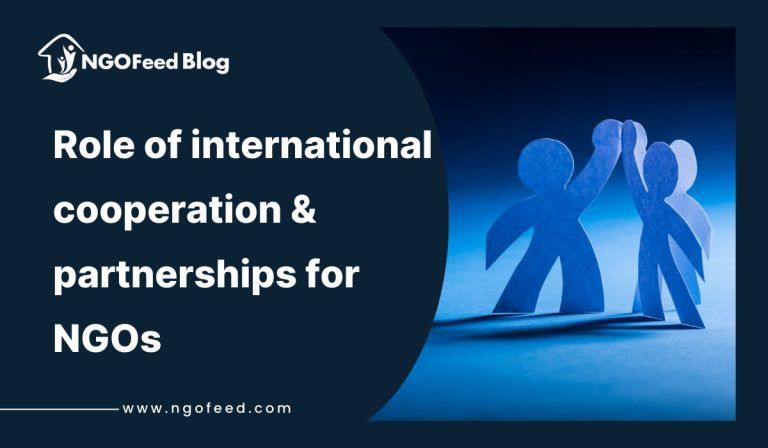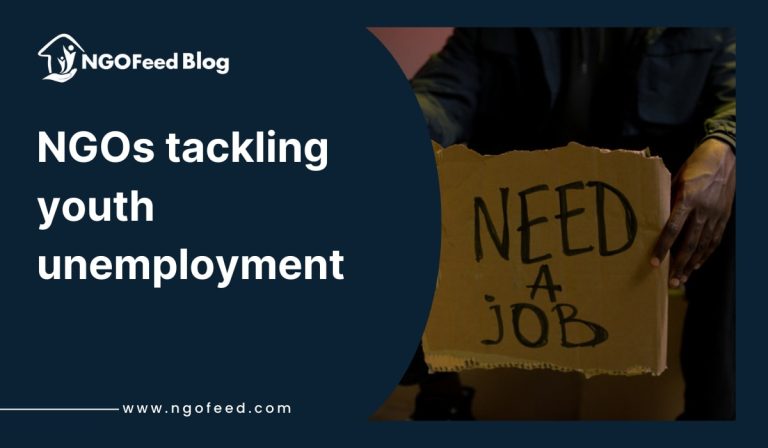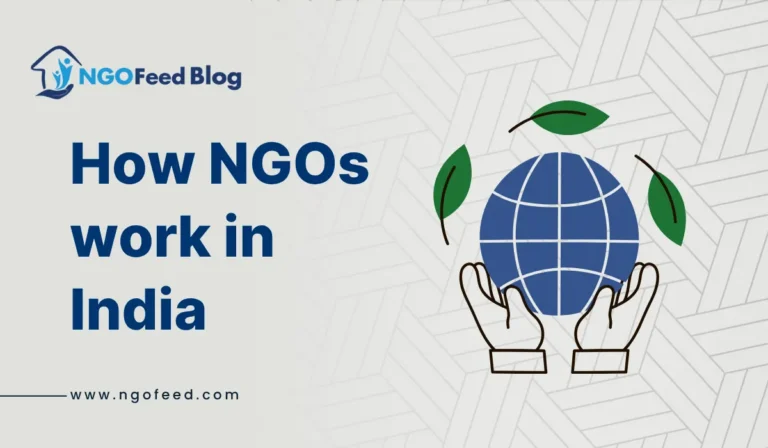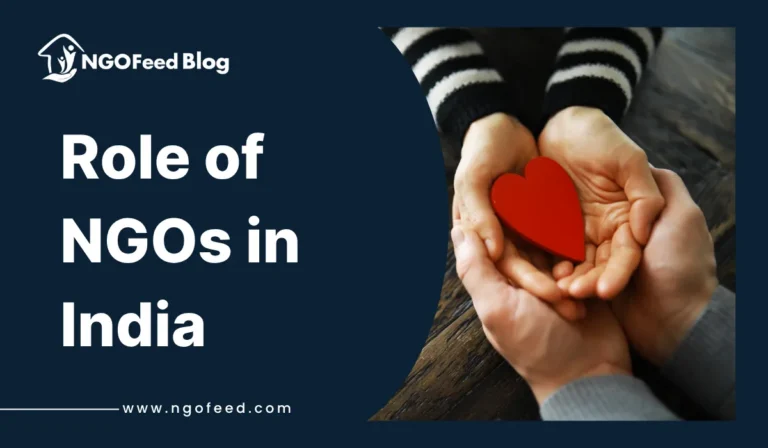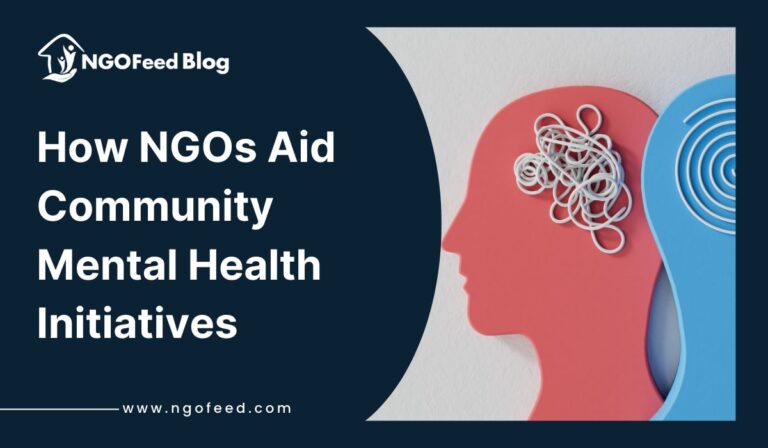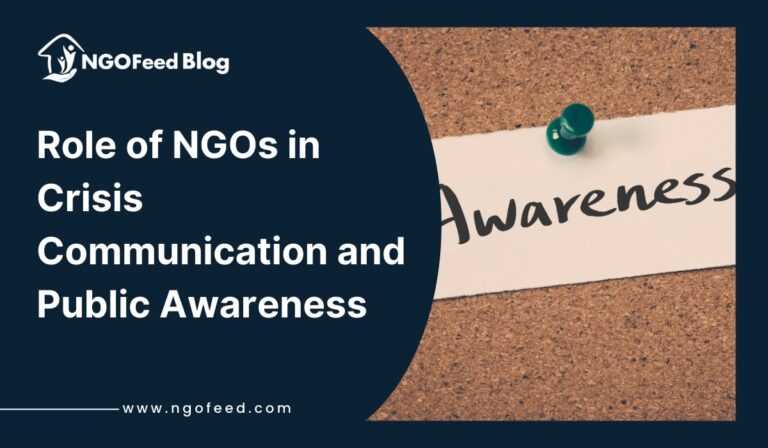Role of NGOs in Cyber Crime Against Women: The modern digital era enables people to use the internet to build connections while using it to express their views and gain control. The digital world has become a new spot for criminal activity where women mostly experience online targeted criminal conduct. Online harassment together with stalking and doxxing operations and non-consensual image sharing and cyberbullying create digitally-based threats that hit women more frequently and result in genuine physical danger. Because technology continues to evolve the methods cybercriminals use to attack and intimidate victims, the urgent need for sensitive approaches to face these crimes becomes more vital.
NGOs function as primary institutions to offer support to women who have suffered from cybercrime incidents. Supporting women through their rights advocacy work in the virtual world involves NGOs delivering three main services to combat digital harm: legal defense and counseling, safety training, and policy monitoring.
Also Read: Role of Cryptocurrency in Nonprofit Donations
The collaborative actions between NGOs in India extend to working together with law enforcement as well as tech firms, and policymakers to build safer and more welcoming virtual platforms. The article examines the important work of NGOs that fight cybercrime against women by giving support to victims while educating society and working toward fundamental system changes in cybercrime policies throughout India and other nations.
Table of Contents
Understanding Cybercrime Against Women
The digital world both opens tremendous potential and generates new gender-based violence types due to its nature. Easily accessible internet platforms make women with prominent digital profiles prone to cybercrime attempts that seek to limit their voices and control their lives. The initial step to developing protective frameworks and support networks requires full comprehension of these offenses and their outcomes.
Types of Cybercrimes Targeting Women
Women encounter different types of cybercrimes that develop from misogynistic power systems and social structures. Numerous typical cyber crimes exist that target women including:
Also Read: Role Of NGOs In Prison Reform and Criminal Justice
- The purpose of cyberstalking consists of persistent surveillance combined with non-requested contact through technology to inflict terror or establish dominance over victims.
- Public harassment through social media platforms consists of abusive messages, threats, and sexually explicit content that is transmitted through social media platforms or messaging apps.
- Non-consensual sharing of intimate images: Distribution of private images or videos without consent.
- The practice of revealing personal information through doxxing includes releasing phone numbers addresses and workplace information to the public.
- The creation of one or more false online identities through impersonation leads to actions of defamation and manipulation of others.
Users frequently encounter cyberbullying alongside trolling because both methods focus on purposefully targeting women to degrade them emotionally through repeated online attacks.
Also Read: How To Optimize Your NGO Website For Voice Search?
Psychological, Social, and Legal Impact
Women experience extensive detrimental effects from cybercrime activities that go beyond digital environments. The psychological effects of victimization result in anxiety and depression, together with loss of self-esteem and post-traumatic stress. When women experience continuous anxiety about being monitored or abused they may choose to quit participating in digital communities which sometimes extends to social separation in the physical world.
Victims encounter social repercussions because people in certain communities tend to judge and disbelieve them about digital abuse when discussions around this topic remain unacceptable to these groups. The dread of public opinion stops many women from alerting authorities about such situations or looking for assistance.
Also Read: Transparency in Nonprofit Operations
The enforcement of cyber laws in India suffers from inconsistent application because the country has established the IT Act and IPC provisions with the IT Act and IPC but its implementation varies between regions. The struggle for justice demands immediate NGO and legal advocate involvement because victims encounter many delays and encounter insensitive authorities and insufficient legal counsel.
Why NGOs Are Important in the Fight Against Cybercrime
The escalating rise of cybercrimes against women makes NGO involvement more essential than ever before. NGO entities connect together victims with law enforcement alongside policymakers and societal members to fill the gaps that government systems leave behind. Their presence in the community along with their gender-informed framework and their community-level activism enable them to handle the complex array of online attacks on women.
Role of NGOs in Cyber Crime Against Women
These organizations serve as connecting links that help victims find justice by lowering the gaps between them and legal processes.
Women who encounter cybercrime refrain from contacting law enforcement agencies primarily because of their fear and sociocultural reluctance and because they lack familiarity with their legal avenues. The work of NGOs makes it possible for victims to receive legal help with filing complaints while gaining support to navigate through judicial procedures. Through their involvement, survivors benefit from professionals who advocate for them while ensuring both belief and the entire course of support. NGOs partner with cybercrime cells and legal aid networks to provide expedited response time which leads to appropriate action in handling cases.
Also Read: Role of UNESCAP in India
Advocating for Policy Change
NGOs advance system transformation through their ability to advocate effectively. The institutions generate policy discussions while researching and sending recommendations to strengthen current cyber laws together with privacy protections and digital rights ensured for women. The experiences gained by these organizations support policymakers when they develop guidelines that are both inclusive and victim-sensitive. Digital rights serve as basic human rights for gender equality and justice according to the advocacy activities of NGOs.
Non-government organizations operate as protected environments together with support structures to assist victims.
Numerous women consider NGOs their protection against abuse because they provide non-critical environments to communicate openly and recover emotionally. Non-government organizations grant victims psychological and emotional support through helplines as well as support groups and counseling services which institutional settings do not provide. The establishment of secure areas serves as a fundamental components for recovery because they assist victims in restoring their self-assurance together with their digital control.
Also Read: Role of NGOs in Sustainable Development
Key Functions of NGOs in Tackling Cybercrime
Non-Governmental Organizations perform various functions to fight cybercrime
Non-Government Organizations deliver multiple functions to fight cybercrime directed toward women. Both protective and restorative measures characterize the interventions of NGOs that support women before and after incidents of cybercrime. These functions comprise essential elements to tackle individual incidents while building up a society that maintains resilience through information dissemination.
Legal Aid and Counseling
NGOs deliver legal help as their main service to victims. People victimized by cybercrime frequently experience uncertainty about the legal process because they lack knowledge about rights and how to start their case. NGOs provide legal assistance through consultation services while creating complaints assisting victims to file FIRs and matching them with free legal professionals. The staff members offer emotional support to aid survivors through their traumatic experiences along with their feelings of terror and fear which often emerge from being abused online. Such comprehensive help protects both the physical and mental well-being of women throughout their recovery journey.
Also Read: Role of WHO in Healthcare
Digital Literacy and Safety Training
The same importance exists between preventive actions and intervention activities. The educational programs delivered by NGOs teach women and girls the necessary online protection techniques that encompass secure password management and deception identification as well as optimal privacy controls and harassment reporting procedures. The workshop sessions focus on specific student needs according to age range literacy skills and economic conditions to protect vulnerable digital users.
Also Read: Role of NGOs in Conservation and Biodiversity Protection
Awareness Campaigns and Workshops
The fight against cyber violence depends on the lead role of NGOs that execute educational campaigns through schools and social media platforms as well as community engagement activities. These programs face social prohibitions by encouraging cybercrime reporting and teaching people about their digital rights and ethical conduct. The training sessions teach parents teachers and police personnel alongside journalistic professionals as part of the program to prevent cyber violence.
Victim Rehabilitation and Mental Health Support
After experiencing cyber abuse recovery becomes essential to obtain both legal resolutions and emotional restoration. NGOs deliver mental health support to victims through therapy services in addition to peer support groups as well as stress management programs. Somewhat severe cyber abuse victims who need physical safety protection and stability to maintain their lives can obtain shelter and placement help or assistance with relocation through NGO programs. Nonprofit organizations dedicate their efforts to helping victims recuperate their sense of dignity as well as safety and independence.
Challenges Faced by NGOs in Cyber Crime Against Women
Non-governmental organizations play a vital role in cybercrime prevention against women yet they work under numerous barriers that reduce their operational abilities. Numerous barriers at the structural, social, and systemic levels prevent NGOs from expanding their operations and providing sufficient support against digital violence.
Also Read: Role of UNESCO in Women Empowerment
Funding, Outreach, and Legal Limitations
The main ongoing obstacle that NGOs encounter is erratic and insufficient funding sources. Non-profit organizations use short-term funding from grants or donor support and CSR initiatives that prevent them from maintaining continuous services which include helplines and legal aid and training programs. Financial instability causes excellence in skilled staff recruitment and technological infrastructure development as well as long-term capacity development to suffer.
Connectivity issues and barriers prevent NGOs from successfully reaching all communities that need assistance. Women who face cybercrime risks often lack digital literacy skills together with language skills and inadequate infrastructure that prevents them from learning about available support programs. NGO organizations encounter barriers when pursuing legal remedies because they often face restrictions in accessing police databases and cannot take official positions as victim advocates in court proceedings.
Resistance from Communities and Institutions
When NGOs attempt to fight gender-based cybercrime they typically encounter barriers from both traditional communities and official institutions. Conservative and patriarchal communities do not freely address digital abuse online harassment and other discussions regarding consent. Because families and communities prevent victims from speaking out about their experiences NGOs have limited opportunities to help victims or convince them to report incidents.
Also Read: Role of NGO in Women Empowerment in India
NGO workers might experience resistance at the institutional level when police and public servants fail to show interest in cybercrimes they deem unimportant or personal between individuals. The police force struggles to address digital abuse because it lacks gender-aware processes and specialized capabilities to handle the complex elements found in online attacks which results in delayed justice processes.
How to build a safer digital environment for women?
The Way Forward
Since digital technology expands daily we must step up our efforts to maintain women’s safety within this digital environment. A future effective approach against cybercrime against women requires combined action between NGOs through strengthened networks and progressive policies together with technological safeguards.
Strengthening NGO Networks
NGO organizations need to build stronger collaborative ties between themselves to more effectively confront cybercrime by exchanging information and valuable assets and successful methods. NGOs who create digital rights coalitions with other organizations improve their combined ability to influence the community. The fight against transnational cybercrimes requires national-level collaboration forums as well as international partnerships between organizations. The digital abuse response capabilities of NGO staff will be strengthened through specialized training programs that develop their prompt and sensitive handling of cases.
Recommendations for Policy and Tech Reforms
NGO organizations need government collaboration to establish better cyber laws that prioritize the needs of victims. Quick legal responses should be combined with trained cybercrime teams who receive gender-awareness education and straightforward complaint procedures. Technology companies need to face greater accountability through they must adopt stronger content regulation rules as they should establish open systems for complaint resolution. Legal status granted to NGOs operating in cybercrime cases will create unified systems to provide victim support services.
Also Read: NGO in Women Empowerment
The establishment of a protected digital environment for women needs promotion
Creating completely secure digital environments requires both system enhancements and changes in mental attitudes. Non-governmental organizations must initiate marketing efforts that teach people to respect digital spaces while creating norms about online consent and cyberspace cleanliness. Educational institutions together with workplaces need to implement digital safety lessons for all their students and employees. Through the promotion of empathy and awareness along with accountability functions at every level we can establish an internet environment that allows women to participate freely while thriving.

